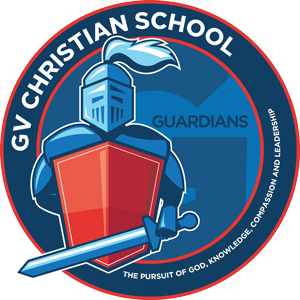English
Language Arts
The Seventh Grade Language Arts curriculum focuses on diverse types of expression, drawing on various texts, including public documents. Students develop their use of language for expressive, informational, critical, and literary purposes. Students read a wide range of texts to interpret, evaluate, and further develop an appreciation for literature. Reading and writing instruction is linked together, and students write for a variety of audiences and purposes. Students use effective sentence construction and further develop editing skills to improve sentence formation, usage, mechanics, and spelling. Seventh graders increase comprehension strategies, vocabulary, an understanding of language structure and grammar rules, as well as high order thinking skills through their encounters with print and non-print text.
Reading & Composition Honors
The Eighth Grade Reading and Composition Honors course is an active and reflective experience of the reading and writing process. The students will develop an understanding of the connection between reading and writing as they explore a range of genres, including but not limited to fiction, non-fiction, poetry, drama, and short stories. The question of, "What makes good writing?" will be explored throughout the course. Eighth graders will continue to expand on their knowledge of figurative language and literary terms in order to develop an appreciation for literature and implement these elements into their own writing.
English I: American Literature Honors
American Literature Honors emphasizes reading strategies for students to know how a variety of literary works, themes, and cultural archetypes define literature. The course includes the concepts that distinguish the major genres: fiction, including short stories, fables, myths, novels, and drama; poetry; and essays. The literary elements inherent in the genres serve as concepts to extend the students' knowledge of literature and other print material such as informational texts. All selections serve as focal points for improving reading comprehension, vocabulary development, and grammar and usage skills. The course offers students numerous opportunities to practice the stages of a writing process, from planning to drafting, revising, editing, and proofreading in order to produce final products in narrative, descriptive, and expository writing. In addition, the students explore and use technology to access, organize, and present their ideas effectively.
English II: World Literature Honors
The World Literature Honors course is a study of representative works from the Renaissance to present day. The course emphasizes the study of the literary, cultural, and societal significance of great works from Western and non-Western literary traditions. An important goal of the course is to promote an understanding of the works in their cultural and historical contexts and how the values of these texts unite the different literary traditions. The course gives special attention to critical thinking and writing within a structure designed around cultural diversity, as well as comparative and interdisciplinary analysis.
English III: Language and Composition Honors
The Language and Composition Honors course explores argumentative and persuasive writing in order to comprehend the hows and whys of nonfiction texts. Students will read various pieces of nonfiction that assist in furthering their understanding of the writing process and how to develop complex arguments. By reading, analyzing, and interpreting texts from multiple time periods, students will be able to evaluate a source of information and better understand the language and strategies used within the texts, which they can then apply to their own academic writing.
English IV: Literature and Composition Honors
The Literature and Composition Honors course is designed to continue to develop the effectiveness of writing through close reading and frequent practice at applying rhetorical strategies, analyzing information from source texts, and writing arguments. The goal is to learn about the elements that define effective arguments and composition through the critical analysis and interpretation of complex texts. Becoming a critical reader of both fiction and nonfiction works from various authors and time periods are what help make this course unique. Learning about the elements that define effective argument and composition through the critical analysis and interpretation of complex texts are what challenge the student's basic understanding of literature. Understanding the interactions among a writer's purpose, audience, subject, and genre and how each of these contributes to effective writing will be the desired result by year's end. These aspects are all tied together in order to enhance the students’ writing skills and better understand each stage of the writing process.
AP® Language & Composition
AP® English Literature and Composition
The AP® English Literature and Composition course is intended to give the experience of a typical introductory college literature course. It includes intensive study of representative works from various genres, periods, and cultures, concentrating on works of recognized literary merit. Reading in the course builds on the reading done in previous English courses. The students learn to read deliberately and thoroughly, taking time to understand a work's complexity, to absorb its richness of meaning, and to analyze how that meaning is embodied in literary form.
Writing is also an integral part of the AP® English Literature and Composition course and of the AP® Exam. Writing assignments in the course will address the critical analysis of literature and will include expository, analytical, and argumentative essays. In addition, creative-writing assignments such as response papers, freewriting, or journal prompts will help the student see from an inside perspective how literature is written. The goal of both types of writing assignments is to increase the student's ability to explain clearly and reasonably what is understood about literary works and their interpretations.
